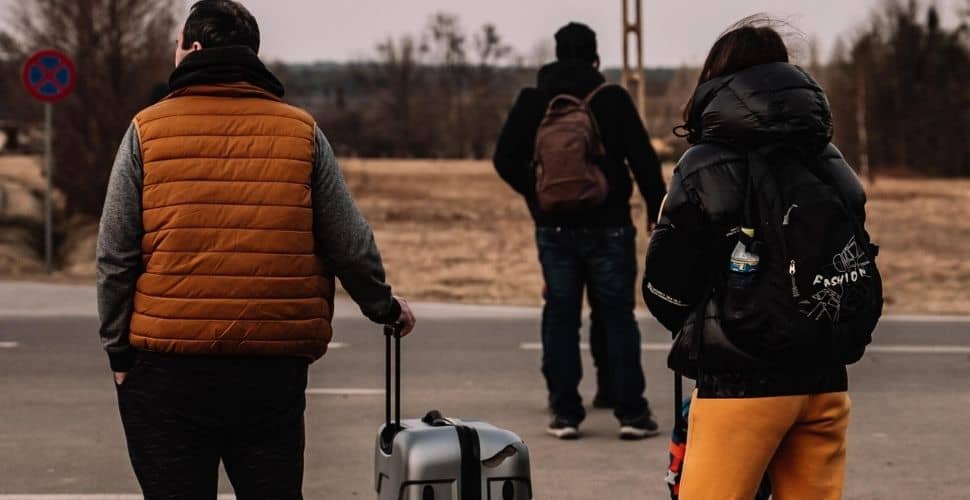It’ll take years before we know the true scale of Ukrainian refugees trafficked following the war in Ukraine. Russia escalated its invasion of Ukraine in February this year causing millions to flee and seek safety in other countries.
Laura A. Dean, associate professor of political science and director of the Human Trafficking Research Lab at Millkin University, explains that stereotypes about human trafficking are shaping policy responses to this crime.
Stereotypes of human trafficking and people’s experiences
She writes that these stereotypes can undermine trafficking prevention and protection strategies as varying state responses fail to recognize all forms of human trafficking and who experiences them. Though 72% of trafficking victims worldwide are women and girls, 50% of identified trafficking victims from Ukraine since 2015 have been men and boys.
Dean writes in the Washington Post how anti-trafficking policies can exclude men:
I found two reasons anti-trafficking policies often leave men out. First, anti-immigration attitudes lead people to view men as economic migrants and not possible trafficking victims, and so they’re simply not identified. Second, female sex trafficking is a prominent policy issue because many people see female victims as more worthy of government assistance than men.
Furthermore, the widespread belief that traffickers are solely men can also skew a person’s understanding of trafficking risks. A third of traffickers worldwide involved in trafficking for sexual exploitation are reportedly women.
Uneven approaches to human trafficking
Neighboring countries in the Eurasia region have varying levels of domestic legislation and protections for trafficking victims. That means that Ukrainians who may have been trafficked across borders or trafficked on arrival will have different experiences of being identified and supported as victims, and won’t be able to expect standardized support.
Ukraine’s own anti-trafficking response prior to the escalated war this year was comparatively strong. Dean explains why Ukraine ranked top on her Human Trafficking Policy Index: “it had all four types of human trafficking policy, including listing trafficking in the criminal code, having a national action plan and a national law and government decrees.”
Anti-trafficking implementation stalled by war
But following the war, implementation of these policies has stalled prompting the Ukrainian government to alert the UN Secretary-General that they would not be able to meet their obligations under the Palermo Protocol until their territorial security is restored. War and conflict thus prevents governments from executing national anti-trafficking strategies.
Dean’s research into human trafficking in Ukraine demonstrates that human trafficking can often take a long time to be discovered for a number of reasons. Once trafficked, people can remain in exploitation for years before managing to leave and report their experiences. Others may take a substantial amount of time in coming to terms with their experiences and recognizing their exploitation as a form of human trafficking.
Safe migration across borders is key to ensuring potential trafficking victims, including those fleeing war, are able to seek safety in other countries without risking criminalization for immigration offenses. Immigration law should never supersede the systems designed to provide protection and support for trafficking victims and survivors. Sign the petition today.







Freedom United is interested in hearing from our community and welcomes relevant, informed comments, advice, and insights that advance the conversation around our campaigns and advocacy. We value inclusivity and respect within our community. To be approved, your comments should be civil.